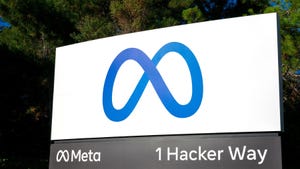Quincy's Gain: Huge Growth in Tax RevenueQuincy's Gain: Huge Growth in Tax Revenue
Quincy, Washington has experienced enormous benefits from the influx of data centers, even as state officials have moved to crack down on sales tax breaks for data center development.
December 15, 2009

microsoft-quincy
Taxes and data centers have become a hot-button issue in Washington State, where state officials ruled last year that data centers were no longer covered by a sales tax break for manufacturers. The downside of that move was highlighted today at an economic development in Quincy, the small town in Washington that has become the poster child for data center development.
Local officials made it clear that Quincy has experienced enormous benefits from the influx of data centers from Microsoft Corp., Yahoo, Intuit and Sabey Corp. Quincy Mayor Jim Hemberry said the city experienced an eight-fold increase in sales taxes between 2001 and 2007, and a tripling of property tax revenues from 2001 to 2009. “No question, those data centers had an impact,” Hemberry said at the event, which was covered by the Wenatchee World.
Windows Azure Flees From State
That spigot of revenue may be short-lived due to the state's stance on data center tax incentives. Microsoft announced in August that it was migrating its Windows Azure cloud computing infrastructure from its data center in Quincy to another Microsoft facility in San Antonio. The reason: Microsoft’s unhappiness with tax policies in Washington state.
Without the tax break, Microsoft (MSFT) would pay a 7.9 percent tax on all new data center equipment. Since Windows Azure will require thousands of additional servers once it launches, those costs would add up quickly.
Quincy is a magnet for data centers because of its abundant supply of cheap, “green” hydro power generated by area dams. Others have continued to build in Quincy, including Sabey Corp. and Intuit. Yahoo has not indicated whether it will resume a planned expansion in Quincy, but has announced new data center projects in Nebraska and New York.
Interestingly, state and local officials said last week that Quincy has "done everything right" by investing in power, water and fiber-optic connectivity. “What we can see (about Quincy) is that this high-tech growth is real, that this area has become a real hub for strong economic activity,” said Lew McMurran, a vice president for the Washington Technology Industry Association.
Funding Local Improvements
Quincy is using its higher tax revenues to improve city services, Hemberry said, including imporvements to its library, senior center, museum and playground equipment. Tax revenues have also been earmarked for new equipment for the police and fire departments and emergency medical services.
The tax controversy in Washington State erupted in December 2007 when attorney general Rob McKenna ruled that data centers were no longer covered by a state sales tax break for manufacturing enterprises because they “do not produce a product which is sold to the companies’ customers.”
Microsoft and Yahoo halted construction on their multi-facility data center campuses in Quincy while state legislators debated whether to reinstate the tax break, which was Microsoft and Yahoo relied upon in their decisions to build their Quincy projects. The legislative effort later stalled after local media characterized the bill as a $1 billion tax break for high-tech giants.
That sentiment makes it unlikely for the measure to be resuscitated this year, as Washington legislators struggle to close a $2.6 billion gap. But data center developers remain interested in the cheap hydro power available from dams on the Columbia River, as evidenced by recent activity in Oregon, where Silicon Valley REIT Mission West is planning two projects, Amazon is said to be restarting construction on new facility in Boardman, and an unnamed 'Company X' is scouting sites in Prinveille.
RELATED STORIES:
Read more about:
North AmericaAbout the Author
You May Also Like







